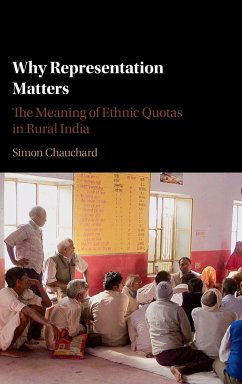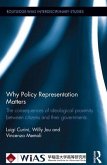When members of groups that have long been marginalized finally gain access to political offices, it is expected that the social meaning of belonging to such a group will change and that these psychological changes will have far-reaching behavioral consequences. Supporters of political quotas granting such access often argue that they improve the nature of intergroup relations. However, these presumed psychological effects have remained surprisingly uncharted and untested. Do policies mandating the inclusion of excluded groups in political offices change the intergroup relations? If so, in what ways? By drawing on careful multi-method explorations of a single case - local-level electoral quotas for members of formerly 'untouchable' castes in India - this book provides nuanced, thorough and ultimately optimistic responses to these questions.
Bitte wählen Sie Ihr Anliegen aus.
Rechnungen
Retourenschein anfordern
Bestellstatus
Storno









